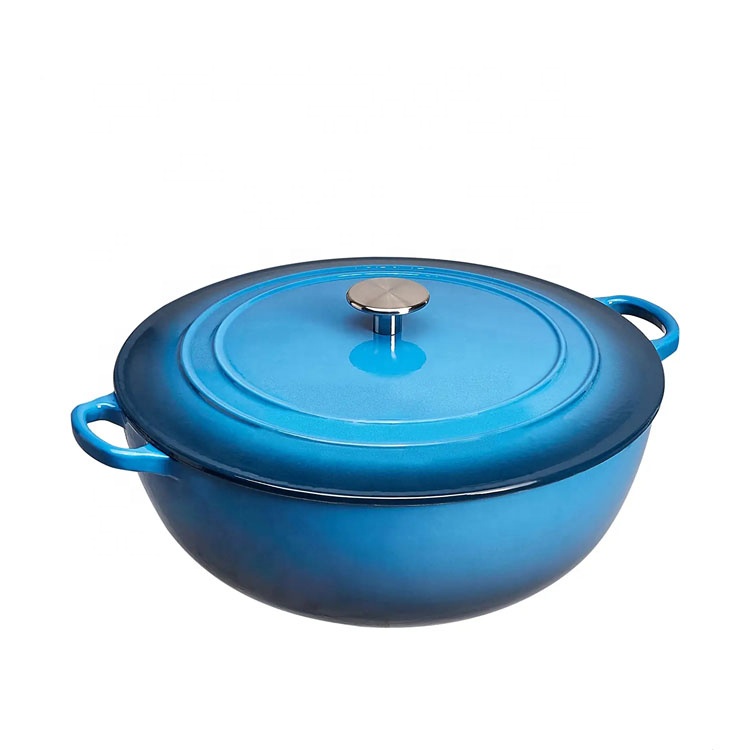
Benefits of Cooking with a Healthy Cast Iron Skillet for Better Meals and Nutrition
The Benefits of Cooking with a Healthy Cast Iron Skillet
When it comes to kitchen essentials, few items are as versatile, durable, and beneficial as a cast iron skillet. Not only do they provide an efficient cooking surface, but they also offer a range of health benefits that make them an excellent choice for culinary enthusiasts and health-conscious cooks alike.
What is a Cast Iron Skillet?
A cast iron skillet is a pan made from molten iron that is poured into a mold to create the desired shape. The material is known for its ability to retain heat, which allows for even cooking and excellent heat distribution. Cast iron skillets are usually seasoned with oil, creating a natural non-stick surface that improves over time with proper care.
Nutritional Benefits
One of the most significant advantages of cooking with cast iron is its ability to increase the dietary iron content of food. This is especially beneficial for individuals who have higher iron needs, such as pregnant women, young children, and individuals with iron-deficiency anemia. Iron leaches into food cooked in cast iron, particularly acidic foods like tomato-based sauces, enhancing iron intake without the need for supplements.
Non-Toxic Cooking Surface
While many non-stick pans are coated with chemicals like Teflon, which can release harmful substances when heated, cast iron skillets are a healthier option. When seasoned and maintained correctly, they create a natural non-stick surface without the associated health risks of synthetic coatings. This makes cast iron a safer choice for preparing a wide variety of dishes, from sautéed vegetables to fried eggs.
Durability and Sustainability
healthy cast iron skillet

Cast iron skillets are incredibly durable and can last a lifetime or even be passed down through generations. Unlike cheaper non-stick pans that degrade over time, a well-maintained cast iron skillet becomes better with age, developing a natural patina that enhances its non-stick properties. This longevity not only makes cast iron a cost-effective investment, but it also supports sustainable cooking by reducing waste.
Versatility in Cooking Methods
Cooking with a cast iron skillet opens the door to numerous culinary techniques. You can use it for frying, baking, sautéing, searing, or even roasting. The skillet can easily transition from stovetop to oven, making it a fantastic tool for one-pot meals. This versatility allows you to explore a wide array of recipes while minimizing the number of dishes you need to clean.
Environmentally Friendly
In addition to being a durable choice, cast iron is also environmentally friendly. The manufacturing process does not involve harmful chemicals, and the pans can be recycled at the end of their lifespan. By choosing cast iron over disposable or single-use kitchenware, consumers contribute to a more sustainable planet.
Care and Maintenance
To reap the full benefits of your cast iron skillet, proper care is essential. Regular seasoning, which involves applying a thin layer of oil and heating it, creates and maintains the non-stick surface. It’s critical to avoid harsh detergents and abrasive scrubbers when cleaning, as they can strip the seasoning. Instead, use hot water and a gentle scrub to keep your skillet in top condition.
Conclusion
Cooking with a healthy cast iron skillet allows you to enjoy numerous benefits, from enhanced iron intake and non-toxic cooking surfaces to long-lasting durability and versatility in the kitchen. By incorporating a cast iron skillet into your cooking routine, you can create delicious meals in a healthier way while promoting sustainable practices. Embrace this timeless kitchen tool and experience the myriad of flavors and benefits it offers!
-
Season Cast Iron Perfectly with GPT-4 Turbo TipsNewsAug.01,2025
-
High Quality Cast Iron Cookware - Baixiang County Zhongda MachineryNewsAug.01,2025
-
Premium Cast Iron Pan: Durable & Perfect HeatNewsAug.01,2025
-
High Quality Kitchen Durable Black Round Cast Iron Cookware Pancake Crepe Pan-Baixiang County Zhongda Machinery Manufacturing Co., Ltd.NewsAug.01,2025
-
Cast Iron Cookware - Baixiang County Zhongda Machinery | Nonstick, Heat ResistanceNewsAug.01,2025
-
High Quality Kitchen Durable Black Round Cast Iron Cookware - Baixiang County Zhongda Machinery | Non-Stick, Heat Retention, DurableNewsJul.31,2025


